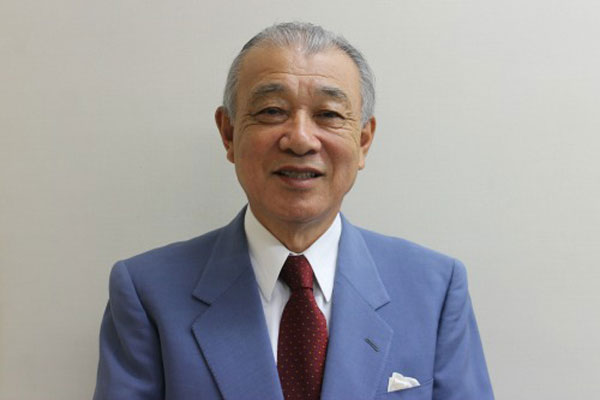| |||||||||
|
|||||||||
|
By:
AGGREY MUTAMBO | |||||||||
| Posted:
Aug,31-2016 13:04:39
| |||||||||
|
The meeting was a symposium on agriculture and Japanese Prime Minister Shinzo Abe who was in Nairobi for the Tokyo International Conference on African Development (Ticad) was to give an address.
Titled, Contributing to Social Security and Jobs through Agriculture, it drew economists, donors, development bankers and government ministers to a plenary hall at the Kenyatta International Convention Centre (KICC).
"I have heard that in Africa in years past, there was a widespread understanding that producing a single crop bound for export was what was considered 'agriculture,' Mr Abe said, referring to Africa's subsistence agriculture.
The story of farming in Africa and how it recycle our poverty was always going to come up at this type of meeting.
"Africa must win gold in agricultur...but before we do that, we must do the right things first," Dr Akinwumi Adesina, the African Development Bank President told the audience, equating the potential of agriculture to an athlete preparing for the Olympics.
The forum offered a chance to debate policy, critique failure to adopted modern technology even as all experts generally agreed it was the reason Africa's agriculture lags behind.
But to one man in the audience, the debate offered a reflection to the past. Mr Yohei Sasakawa, Chairman of Japan's The Nippon Foundation had been scheduled to speak on food security and how training farmers is key.
"I strongly feel that in order to improve food supply in Africa, it would be necessary to help smallholder farmers with methods to increase food production," he told the forum.
The Nippon Foundation, originally established in 1962, initially focused on maritime and shipping.
So how did he come to know about Africa’s famines? Mr Yohei Sasakawa's father, Ryoichi Sasakawa, was a businessman who first heard about the Ethiopian famine in 1984. Initially, together with his Foundation gave donations following a global appeal by artistes including U2 about the food situation then.
"I saw children who could hardly open their eyes because they were so hungry, and it was then that I decided to deliver food, any amount possible, as soon as possible," Yohei recalled his father’s efforts.
It would appear that famine wasn't the last in the Horn of Africa and it would return in later in the 1990s and as late as 2011 and 2015.
Yohei and his father reasoned that endless food aid would not help.
"Food aid, however, is a temporary solution. In the end, it is only a means of emergency support," he said.
Soon, they roped in former US President Jimmy Carter and Dr Norman Borlaug, the American biologist credited with the Green Revolution in India and Pakistan.
Borlaug was 70 at the time having won the Nobel Peace Prize Laureate for his efforts. Ryoichi Sasakawa was 15 years older. But they were all humanitarians and formed the Sasakawa Africa Association (SAA).
The Sasakawa Africa Association was meant to ensure Africa feeds itself. They targeted smallholder farmers across the continent.
The initial programme called the Sasakawa-Global 2000 programme, which was part of Carter's Global 2000 initiative began in Ghana in 1986 and grew to reach out to 14 African countries.
By 2009, the Sasakawa African Association started focusing on four main countries--Ethiopia, Mali, Nigeria and Uganda--in what Yohei argued was to emphasis on women farmers supporting them to deliver goods to markets.
The SAA is currently headed by Kenyan scientist, Professor Ruth Oniang'o, who ensures the association works with 24 universities in these countries, and trained 6,000 extension agents.
After 30 years of the association, Africa still has teething problems about food production, but the Japanese argued his contribution to agriculture will one day bear long--term fruit.
| |||||||||
|
Source:
| |||||||||
|
||||||||||||||||||||||||||||||||||||||||||||||||||||||||||||||||||||||||||||||||||||||||||||||||||||||||||||||
|
||||||||||||||||||||||||||||||||||||||||||||||||||||||||||||||||||||||||||||||||||||||||||||||||||||||||||||||


.jpg)




